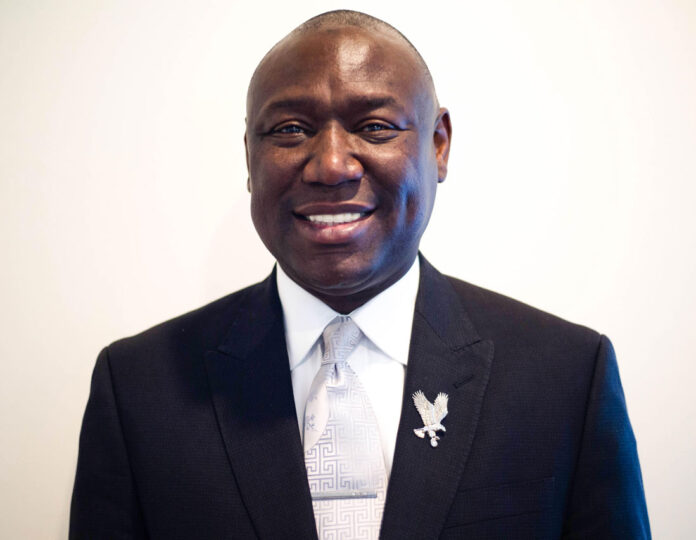
By Natalie Jackson, Special to the Houston Forward Times
Momentous events can occur in an instant, but more often they emerge after a long build-up.
The explosion of protests all over the world was such a moment following the George Floyd killing. And Ben Crump who has been called the African American family emergency plan received yet another call from an African American family who was devastated unexpectedly by an unjustifiable killing at the hands of the police.
This is not out of the ordinary for the North Carolina native Ben Crump who moved to South Florida when he was 12 years old. He first received national recognition when he represented 14-year-old Martin Lee Anderson who was killed at the Bay County Sheriff’s Boot Camp in 2006. Crump advocated for the family and received the largest settlement from the state of Florida for wrongful death. He worked with the Black Conference of State Legislators to close boot camps in the state.
Crump rose to international prominence when he represented the family of Trayvon Martin, the 17-year-old child who was killed by neighborhood watchman George Zimmerman in 2012.
Most recently, Crump has represented three of the most high-profile cases in America today in his representation of the families of Floyd, Ahmaud Arbery, who was shot while jogging in Brunswick, Georgia, and Breonna Taylor, gunned down in her bed by Louisville police in Kentucky. But his role in the movement stretches back more than a decade and includes the cases of Michael Brown and Tamir Rice, as well as Corey Jones, Pamela Turner, Botham Jean, Stephon Clark and others.
His face and voice are everywhere – from rallies to funerals, from cable news to a recent profile in the Washington Post. At Floyd’s Houston funeral, the former President of the National Bar Association was introduced by the Rev. Al Sharpton as “Black America’s attorney general.”
Ben Crump’s passion for civil rights and justice goes back to his childhood in small Lumberton, NC, where he attended his first integrated school in fourth grade and came to idolize Thurgood Marshall. His family moved to Florida when he was in middle school and he got his undergraduate and law degrees from Florida State University. The 50-year-old Crump is the founder and principal of Ben Crump Law, which has grown to over eight offices across the country, but he never forgot his Lumberton, North Carolina, roots.
He began his law practice handling personal injury cases, but his determination to right wrongs and achieve justice spans the spectrum from fighting for Black Americans killed by police to ensuring restitution for poor residents, subject to environmental toxins. His current workload includes cases accusing Flint, MI, of poisoning Black residents though a tainted public water supply, and Johnson & Johnson of targeting Black women with talcum powder that causes ovarian cancer.
Crump is widely known as the go-to attorney when police violate the rights of Black men and women. And, sadly, those cases abound.
Even though they make up less than 13% of the U.S. population, Blacks are more than twice as likely as Whites to be shot and killed by law enforcement.
In an era when cell phone videos and bodycams are capturing acts of police misconduct and keeping the cases front and center, there is no end in sight for Ben Crump’s work on behalf of victims. He is simultaneously encouraged and concerned about the necessary shift in public opinion in the wake of the 8 minutes and 46 seconds that took George Floyd’s life.
“I’m not stunned that this is happening in 2020. It takes extraordinary effort in America for Black people to get simple justice,” Crump, said in that Washington Post profile. “I feel like I’m running out of time.”

